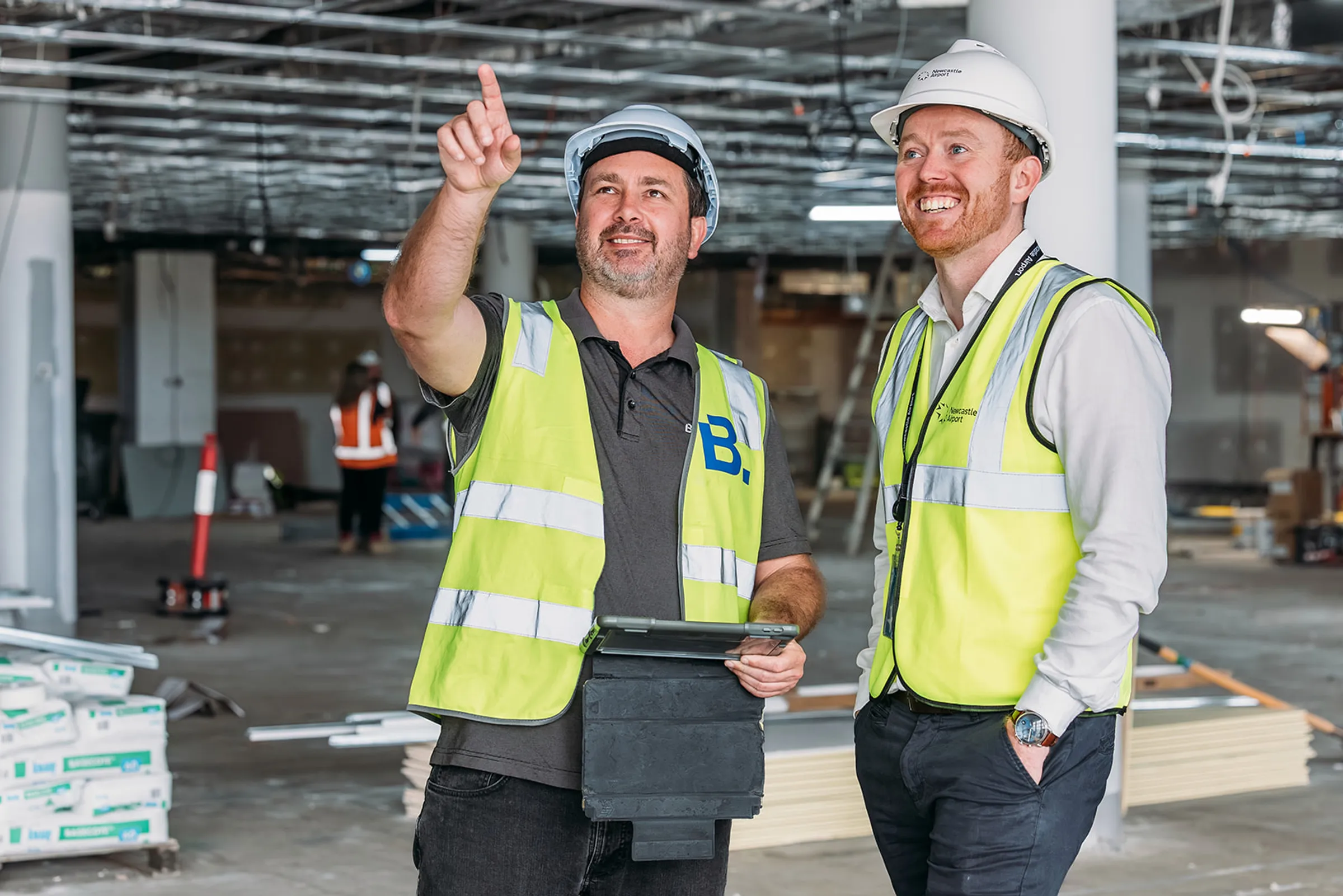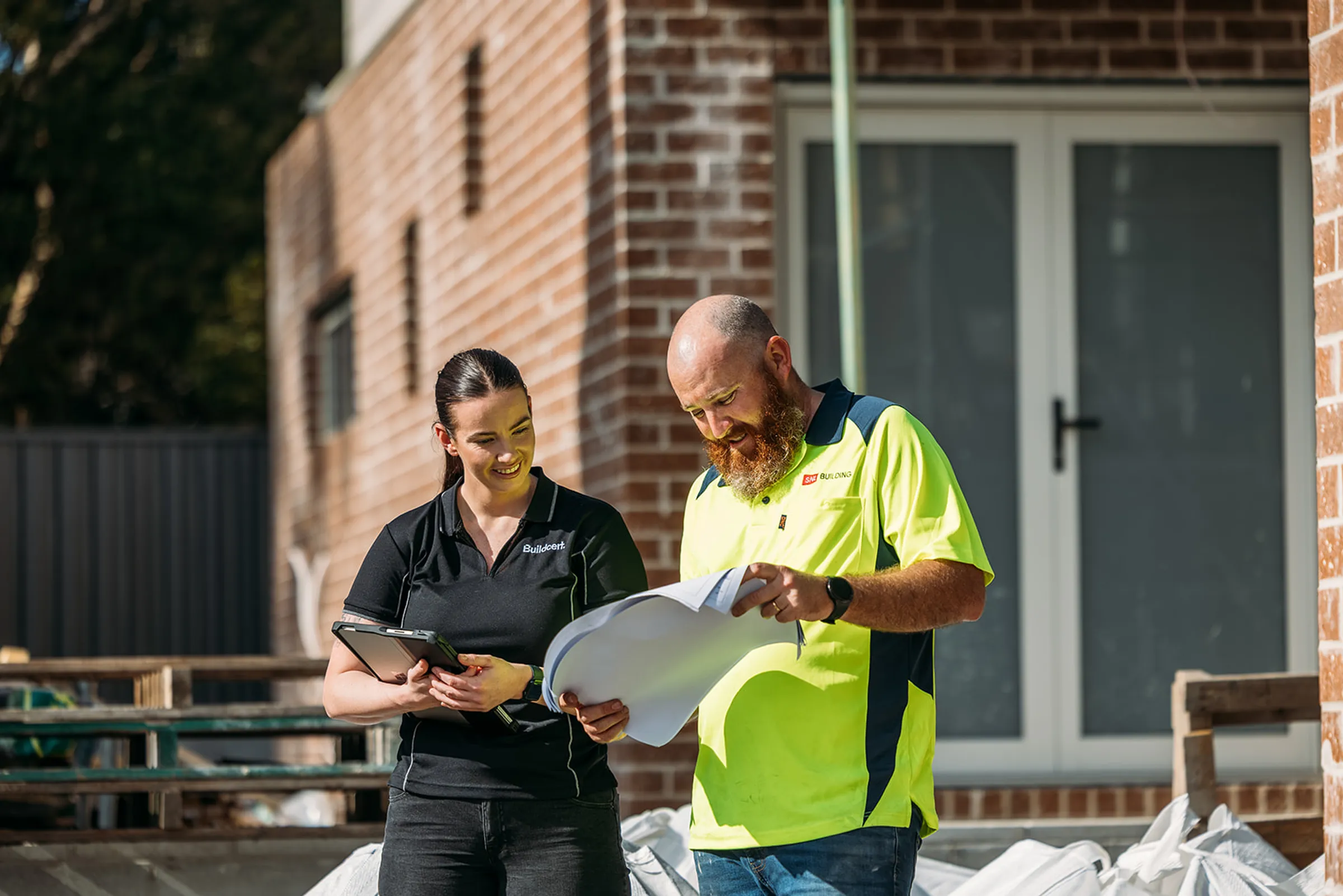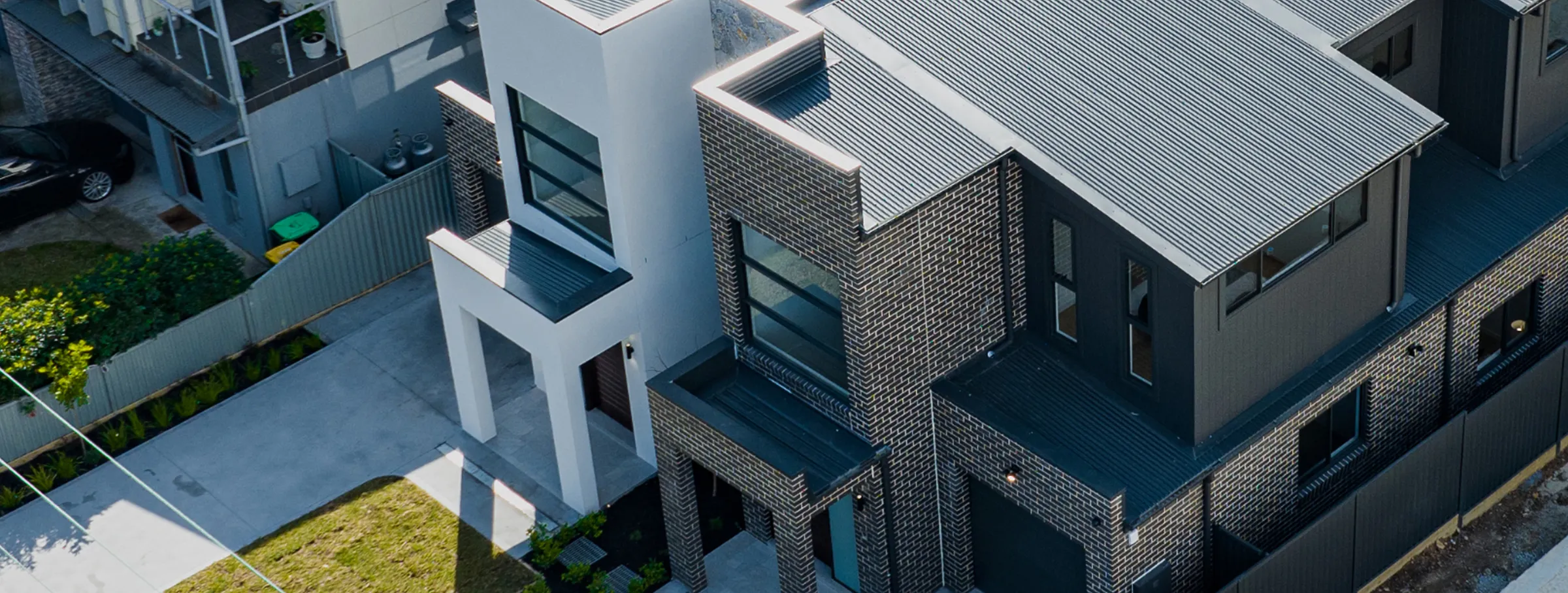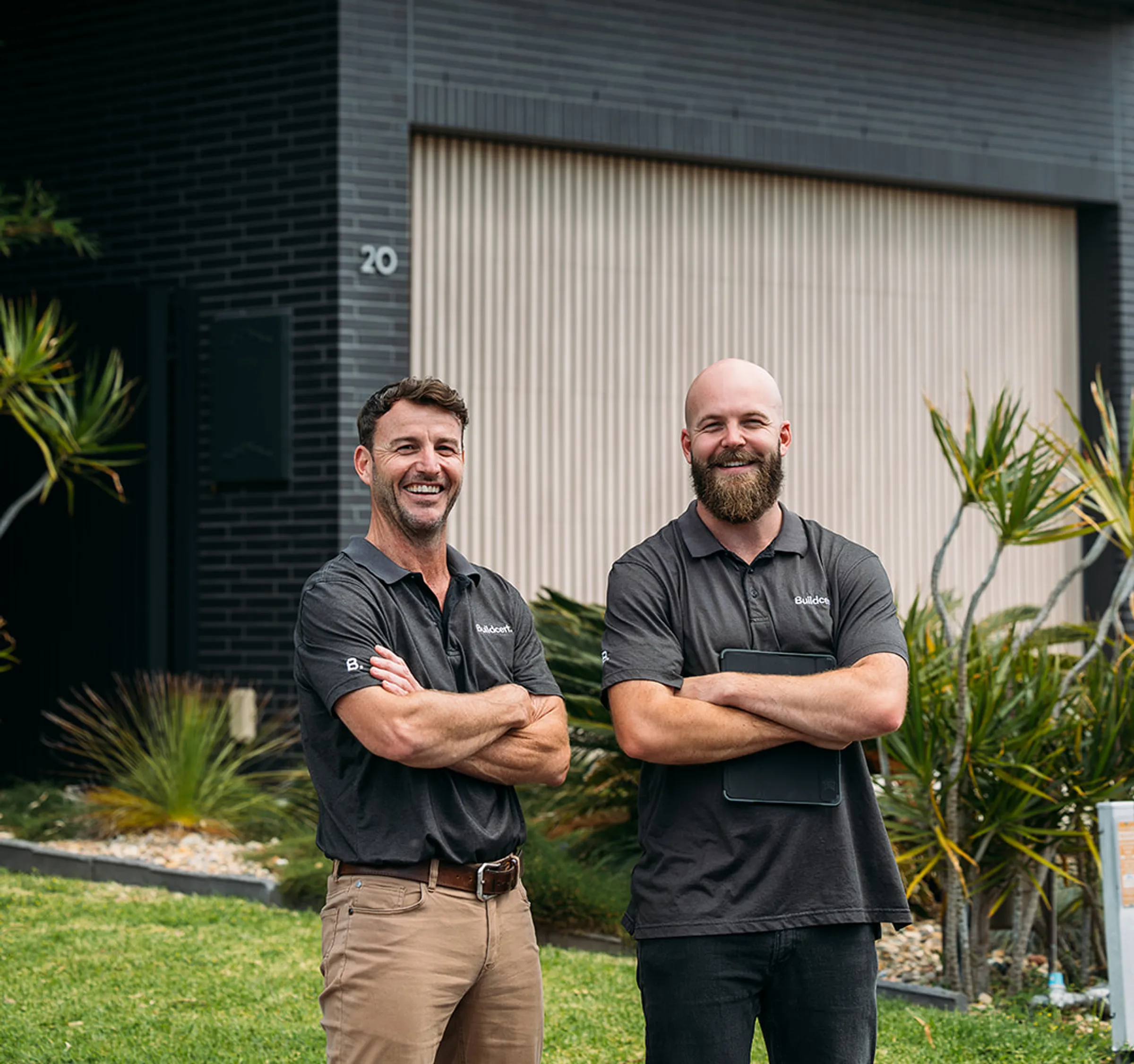
- NSW
- QLD
- Residential



Mandatory inspections are a legal requirement for all building works in NSW. They happen at key stages of construction to confirm your project is progressing as it should, in line with your approval conditions.
At Buildcert, we take the guesswork out of the process. Our certifiers work with you from the start to confirm which inspections are required, when they need to happen, and what documentation will be checked. The result? No confusion, no delays, just peace of mind knowing your project is on the right path.
If you are in our service area and book by 3pm, we can even be on site the next day*.
*working days only

[ Inspection stages ]
The mandatory inspections you’ll need depend on your project’s building classification. As part of our role as Principal Certifier, we’ll nominate the inspections specific to your approval so you know exactly what to expect.
Here’s the minimum required by law:
Includes dwellings, secondary dwellings, dual occupancies (side by side), multi-residential terraces, sheds, pools, retaining walls, carports, and other ancillary residential development.
Note: For swimming pools, a barrier inspection must be booked as soon as practical after the barrier is installed.


[ Missed inspections ]
Missing an inspection isn’t something that can be brushed off. By law, an Occupation Certificate can’t be issued if a mandatory inspection hasn’t taken place, unless it’s deemed “unavoidable” and backed by solid evidence. Simply forgetting or miscommunication isn’t considered enough.
If an inspection is missed, the owner must be formally notified, and extra steps are required. This may include a statutory declaration explaining the circumstances, and supporting documents such as engineering certifications, first and/or third party certification and photos to prove compliance. Even then, approval is not guaranteed, which is why booking inspections on time is critical.